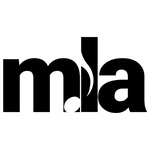In late January 2017 conversations began on the Music Library Association (MLA) listserv about data rescue. These conversations were primarily inquiries to see if anyone on the MLA-L was aware of data archiving or rescue efforts underway for vulnerable performing arts and music data on government websites. As a digital scholarship librarian whose disciplinary background is grounded in musicology and librarianship, I eagerly joined the conversation and reached out to colleagues in the MLA and beyond, including the Society of American Archivists (SAA), in order to start an informal environmental scan of existing data rescue initiatives, as well as, strategize and identify efforts that we (or our colleagues and institutions) could participate in.
A small group of us convened virtually, as well as at the 2017 MLA conference to discuss our concerns, possible courses of action, and outreach to organizations and people. During our environmental scan and outreach to individuals and institutions that worked with or held performing arts and music data, we identified the National Endowment of the Humanities (NEH), the National Endowment for the Arts (NEA), and the Institute of Museum and Library Services (IMLS), as the primary agencies for potential data rescue efforts. After speaking with colleagues at the MLA and SAA, several librarians and staff at Boston College agreed to host a data rescue event of our own modeled after the DataRefuge initiative during Endangered Data Week (April 2017). Our efforts were two-pronged: 1) identify and rescue IMLS and NEH data by putting it into a shared CKAN repository and 2) developing an outreach strategy to encourage Boston College faculty and staff to deposit NEA, NEH, or IMLS funded data or project content in our institutional repository. This presentation will discuss how we engaged in small data rescue, examples of current data rescue efforts by different individuals and institutions, and present documentation and workflows as possible models.
Anna Kijas, Boston College
9:45am, 30 minutes

